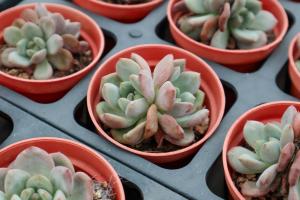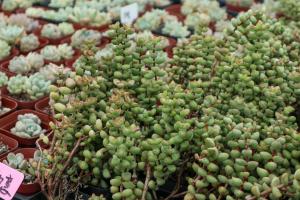Can You Plant Fabric Pots in the Ground?
Many gardeners are switching to fabric pots due to their benefits over traditional pots. These pots are made from breathable fabric that allows air to circulate around the roots, preventing them from becoming waterlogged. They also prevent roots from becoming root-bound, which can stunt plant growth. One question that may arise is whether these fabric pots can be planted directly in the ground. The short answer is yes, you can plant fabric pots in the ground, but there are a few things to keep in mind.
Consider the Material of Your Fabric Pot
The first thing to consider is the material your fabric pot is made from. Some fabric pots are designed to be used in the ground and will be made from sturdier materials than those meant for container gardening. These pots will hold their shape and provide better protection against insects and rodents in the ground. If you're unsure whether your fabric pot is suitable for planting in the ground, check the manufacturers' guidelines.
Prepare the Ground Before Planting Your Fabric Pot
Before planting your fabric pot in the ground, you need to ensure that the area is well-prepared. This means removing any rocks, debris or weeds from the planting area. You should also loosen the soil to improve drainage and aerate the soil. If the ground is compacted, use a garden fork to loosen the soil without turning it over. Adding organic matter, like compost or peat moss, will also help retain moisture and provide nutrients for the plants.
Make Sure to Plant at the Right Depth
When planting your fabric pot in the ground, ensure you plant it at the same depth as it was in the container. Avoid burying the top of the pot in the soil, as this can trap moisture and cause it to decay. Ensure that the rim of the pot is level with the surface of the ground. You can also place stones around the base of the pot to provide stability and prevent it from tipping over.
Keep Your Fabric Pot Watered and Fertilized
Once your fabric pot is planted in the ground, you need to make sure to water and fertilize it regularly. Fabric pots are porous and will dry out faster than traditional containers, so ensure that the soil is moist, but not waterlogged. Fertilize your plants with a slow-release fertilizer or liquid fertilizer every two to three weeks, depending on the plant's needs.
Final Thoughts
Planting fabric pots in the ground offers a convenient and efficient method of growing plants. They are easy to move and can be used for multiple seasons. However, you need to ensure that your fabric pot is sturdy enough for ground planting, and the area prepared properly before planting. Keep your plants well-watered and fertilized, and you'll enjoy healthy, robust plants throughout the growing season.

 how many times do yo...
how many times do yo... how many planted tre...
how many planted tre... how many pine trees ...
how many pine trees ... how many pecan trees...
how many pecan trees... how many plants comp...
how many plants comp... how many plants can ...
how many plants can ... how many plants and ...
how many plants and ... how many pepper plan...
how many pepper plan...































